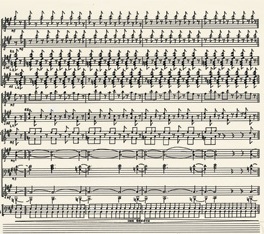The Orange Eats Creeps
Just got this in the mail… kind of really excited about it: The Orange Eats Creeps by Grace Krilanovich, coming from Two Dollar Radio. It speaks for itself I think, I kind of want to marry it for its description alone:
It’s the ’90s Pacific Northwest refracted through a dark mirror, where meth and madness hash it out in the woods. . . A band of hobo vampire junkies roam the blighted landscape—trashing supermarket breakrooms, praying to the altar of Poison Idea and GG Allin at basement rock shows, crashing senior center pancake breakfasts—locked in the thrall of Robitussin trips and their own wild dreams.
A girl with drug-induced ESP and an eerie connection to Patty Reed (a young member of the Donner Party who credited her survival to her relationship with a hidden wooden doll), searches for her disappeared foster sister along “The Highway That Eats People,” stalked by a conflation of Twin Peaks’ “Bob” and the Green River Killer, known as Dactyl.
With a scathing voice and penetrating delivery, Grace Krilanovich’s The Orange Eats Creeps is one of the most ferocious debut novels in memory.
“Like something you read on the underside of a freeway overpass in a fever dream. The Orange Eats Creeps is visionary, pervy, unhinged. It will mess you up.”
–Shelley Jackson“Wandering back and forth between the waste spaces of the Northwest and the dark recesses of its narrator’s mind, The Orange Eat Creeps reads like the foster child of Charles Burns’ Black Hole and William Burroughs’ Soft Machine. A deeply strange and deeply successful debut.”
–Brian Evenson
[You can preorder this book now from Two Dollar Radio for $10. It ships soon I believe.]
You can‘t get Oblique Strategies on your fucking iPhone.
For those without what, there is the Mac OSX Widget.
For those without that, there is the World Wide Web.
There is no writer’s block. Except in your mind maybe.
Bananas
 Jacob Dahlstrup made this banana boat.
Jacob Dahlstrup made this banana boat.
Questions about the VQR thing
 The death-by-suicide of Kevin Morissey is sad. It is also complex, and I’m not sure there is a lot to pin on VQR or Ted Genoways. But reading the Hook article about it is halting more for the operational procedures of VQR than for the details about Morissey’s death, which is speculation and arguably the sort of connect-the-dot journalism that creates its own dots.
The death-by-suicide of Kevin Morissey is sad. It is also complex, and I’m not sure there is a lot to pin on VQR or Ted Genoways. But reading the Hook article about it is halting more for the operational procedures of VQR than for the details about Morissey’s death, which is speculation and arguably the sort of connect-the-dot journalism that creates its own dots.
This isn’t a disclaimer I make to extend any credit to Genoways. If I could punch one person in the nose, it’d be him. The fact that his management is more interesting than suicide really just shows how bizarre VQR’s business is.
The article is worth a read, but here’s the outline: READ MORE >
Belief Quartet
I.
 This morning I was listening to Steve Reich’s “Music for 18 Musicians” on my headphones sitting outside drinking coffee, a 56-minute commitment to listen to in its entirety. The score is recorded live in one take; the instruments played so uncharacteristically that they sound put through a sequencer. Much of Reich’s music is about timbre, acoustic capacities, and the melodic “negative space” between syncopated notes. When some bass clarinets came in pulsing thick and strong, I felt deep droning reverberations in my chest cavity, so visceral it was, so moved by the spiritual score — until I realized a large truck approaching behind me, shaking the ground, its driver the 19th musician.
This morning I was listening to Steve Reich’s “Music for 18 Musicians” on my headphones sitting outside drinking coffee, a 56-minute commitment to listen to in its entirety. The score is recorded live in one take; the instruments played so uncharacteristically that they sound put through a sequencer. Much of Reich’s music is about timbre, acoustic capacities, and the melodic “negative space” between syncopated notes. When some bass clarinets came in pulsing thick and strong, I felt deep droning reverberations in my chest cavity, so visceral it was, so moved by the spiritual score — until I realized a large truck approaching behind me, shaking the ground, its driver the 19th musician.
August 19th, 2010 / 2:04 pm
Montevidayo Foerversy Dear

1. If you haven’t been following the discussions at Montevidayo, a new group blog run by Johannes Göransson, you should start now. Recent posts include Joyelle McSweeney on the Bourne Identity, Johannes on atrocity kitsch, and at least 3 posts on the mechanics of Shutter Island.
2. @ The Awl, an interesting allegation made in finding similarity between Jessica Soffer’s story “Beginning, End” from Granta and Jonathan Safran Foer’s recent publication in the NYer, “Here We Aren’t, So Quickly.” Apparently Soffer was a student of Foer’s wife Nicole Krauss, and the similarity between the stories is mmm. I personally don’t give a crap about stealing, or allegations thereof, because I think all words are words, but still, take a whoop.
3. A friend of mine compared the new Matthew Dear album, Black City, to a Talking Heads for the 00s. He may be on to something.
So is the published work the apotheosis of the work, or its death? Or both? Does it die to you the moment it lives for others? Or is it then born? Or reborn? When and where does the work best live? Oh I’m so tidbitty lately, so curious.
Online Jerks

Are there people you see writing/publishing/commenting online that you feel like you don’t like, even though you’ve never met them? I’ve been thinking about the way persona comes out of no tone mostly online and how people can seem unlikeable and some people even become so angry as to physically hate the person, based mostly on an exchanging of ideas (even if the idea are, you know, bitchy). I often feel I personally have come off like an ass in situations where if it were bodies talking I wouldn’t have been perceived the same way, and yet I also feel I am better at expressing my opinions in text than I am in speaking. It’s a strange duality. I wonder who people hate and what it is that might make someone dislikable someone based on their online appearance? Is it more childish to judge someone based on their online action or to be childish online in the first place? Have you ever felt you didn’t like someone online and then met them in person and felt differently, or vice versa? I know this shit doesn’t matter really, but I wonder.
A Few Notes of Randomness
As an editor, sometimes the way writers value an acceptance into the print issue over an acceptance into the online version of the magazine is frustrating. As an academic, I understand why many writers value print publications. I also respect the desire for a physical artifact, something you can hold in your hands and leave on your coffee table and pass around with friends and loved ones. For many readers, longer work translates better on the page. I respect print. I get it. I also respect online publishing. I find it as valuable as print publication, I love the exposure it provides as well as the accessibility. We print 750 copies of our print issue. Our online magazine gets 7,500 or more unique visitors a month. Now, there are all sorts of factors that will dilute online traffic figures but I know without a doubt that more people can and do read the magazine online than the print version. This week a writer stated in his cover letter, “This story is only for print consideration.” I advised him we consider all work for both print and online publication and if that were a problem, he should withdraw his submission. He withdrew his submission. Sometimes when writers learn their work has been accepted for online publication they express disappointment, ask if there’s something they can do to get their story into the print version like it’s a back room casino in Manhattan. Twice, writers have declined publication. That is their right.
I am on a mission to eliminate the word that, whenever possible, from my writing. It is such an empty word. More often than not the that is not needed. I’m also getting ruthless with just and the excessive use of it as an empty signifier. I keep telling myself, say what something really is. Are there little words you try to eliminate from your writing or tics you try to overcome?
The Rumpus is doing a one off book club for Jonathan Franzen’s Freedom. I signed up for it.
The literary magazine club is actually going to happen! I will pull together some more coherent details early next week for you all. If you would like to join you can watch this space where many of the discussions will take place or you can join the Google Group I’ve created for other discussions and top secret club communiques. NY Tyrant sells out so you might want to get your copy of NY Tyrant 8 (Vol. 3.2) pretty soon!
Have you read the new issue of The Collagist? Mary Miller, who never ever disappoints, has a story called The Cedars of Lebanon that I just love.
Here is a pretty thorough story on the very sad affairs at VQR.
I have an extra copy of Mary Hamilton’s We Know What We Are. If you’re interested, comment with a little story about what you know you are. I’ll pick my favorite on Friday at 5 and you’ll get this book and some other good reads.

